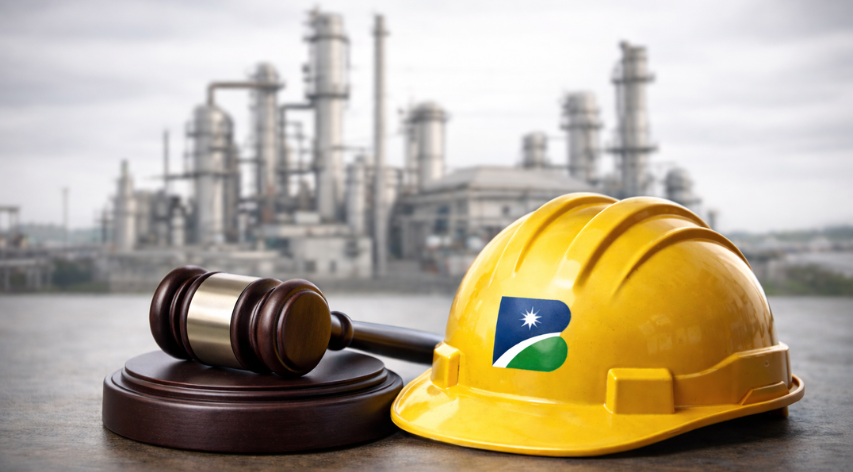Steps to Increase Efficiency, Improve Deliverables and Reduce Expert Witness Costs


OR – Keeping Your Expert Witness Sane –
Litigation is extraordinarily expensive. Legal and expert witness fees can quickly mount up and become a significant percentage of the amount in dispute. I worked on a cost dispute on a plant estimated to cost $68MM but was significantly over expended. The litigation and expert fees were about $10MM or almost 15% of the original estimate for the plant. In this case good scope, an experienced project team and tight control over field construction might have avoided both the over expenditure and litigation.
However, sometimes litigation cannot be avoided and it’s important to control costs of the legal staff as well as the expert witness team. We recently worked on a case where the expert fees were about 7% of the disputed amount. When costs of the legal team were added to the expert fees, the expense was substantial. This article outlines the steps that the client and law firm can take to reduce these costs.
The best way to reduce litigation and expert witness costs is to avoid them all together. This approach is outlined in my blog “Expert Witness, a Becht Engineering Service to Avoid.” That blog outlines the value of a sound project scope, selecting qualified contractors and vendors and having adequate resources to control the project, turnaround or maintenance effort. In the event litigation is unavoidable here are my suggestions to minimize the cost.
- Define the Scope of Work – For those of us working in the engineering field, we know the value of a sound scope of work. In the case of expert witness work, it’s equally important that the client, law firm and experts clearly understand the expectations, scope of work and deliverables from the expert witnesses. Sometimes the law firm does a data dump on the expert and expects the expert to sort through a massive amount of information that was produced in the discovery process. This is highly inefficient and confusing to the experts as they try to assign a relevance to each document and understand how the pieces of the puzzle fit together. During a recent case we were asked to review over 600 documents including many documents over 200 pages long without clear work direction or complete understanding of all the players and issues in the case. A better culling of documents and overview of objectives would reduced costs.
- Perform Front End Loading (FEL) – Successful projects go through an FEL process to define the project parameters, evaluate feasibility and begin to develop cost estimates and execution strategy. During this planning phase it is possible to have the most impact on the chance of success with minimum impact on cost. In the case of expert witness work a similar process can be executed to assure the expert fully understands the issues surrounding the dispute, key players, relevance of documents and if possible a visit to the site concerning the dispute. This will jump start the expert’s effort and in the long run reduce cost and improve the deliverable.
- Provide Access to Plant or Project Personnel – The legal team sometimes isolates the expert from the plant or project personnel who have first-hand knowledge of the issues encountered on the project. With the ability to interview a number of people associated with the job, the expert can gain a better understanding of the issues that preceeded litigation. Interviews should be in the presence of counsel and a broad group should be screened to get a good understanding of the problems. It is important the personnel being interviewed are honest and open to get to the facts as quickly as possible. The ability to interview personnel who had “boots on the ground” while the project was being executed can provide valuable insight on why the project got off track.
- Clarify Communication Channels – It is very important to define up front how information will be sent to the expert, how the review will be conducted and how the expert is to communicate to the law firm and client. This should also define how the expert should take and store notes during the review process and if notes should contain only facts or can contain opinions. This process is important since notes, emails, preliminary reports and other documents or work products are subject to discovery and can be viewed by opposing counsel.
- Define Deliverables – The law firm should clarify up front if the expert will be expected to produce expert reports, rebuttal reports, affidavits or will be expected to be deposed and testify. This is an efficient approach since the expert can be looking for facts to be included in the report during the documentation review. This can potentially avoid recycling the expert’s work. In a recent case we were asked to only review documents and were advised no expert report was to be produced. This was the complete scope of work. As the case neared our time for depositions we were required to produce a set of opinions and be able to address merits of over 50 claims. It would have been much easier and more efficient if this had been defined up front. In addition, this restricted the depth we could get into during testimony since items not discussed in opinion documents during deposition were off topic for arbitration.
- Avoid Unreasonable Expectations – During an expert witness effort in the past we often received 30 to 50 files to review in a very short period of time with no direction on priority or importance of each document. Documents were often over 100 pages each. An additional interface with the law firm to understand the significance of the documents would have allowed for a more efficient and prioritized review.
- Avoid Surprises – We have sometimes been surprised that we needed to produce documents in a few days to be presented to the opposing lawyers. Or, that testimony of key personnel changed at the last minute impacting our strategy or reports. This is very disruptive and must be avoided. Open communication and sound look-ahead schedules help to avoid this problem.
- Partner with the Expert – The expert should be considered an integral part of the team. Sometimes the expert is kept in the dark about aspects of the case or communication is one way. The expert can make a significant contribution to the case if given a broad overview of the issues, strategy and approach. See my blog, Expert Witness, a Partner with Credibility.
- Coach the Expert – It’s quite helpful for the law firm to coach the expert on points that could be raised during deposition or trial and to review the expert report for traps and pitfalls. The expert report should remain the work of the expert, however a constructive review is important.
Execution of these 9 steps should significantly improve the expert witness efficiency and quality of deliverables. The best solution is always to have strong scope and control so litigation can be avoided.
Have a question for Rick? You may post a comment at the end of this blog. Wish to contact him with an inquiry about Becht’s services? Please click the link below.





